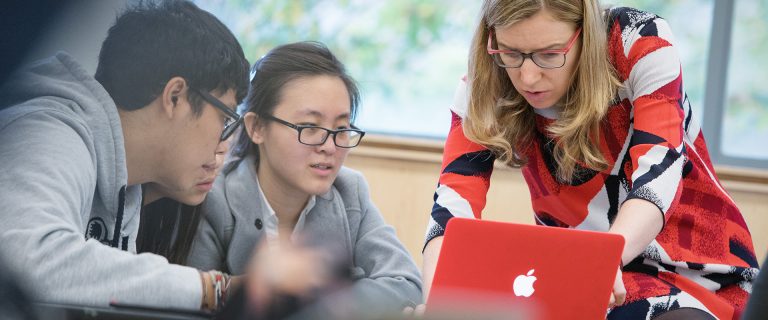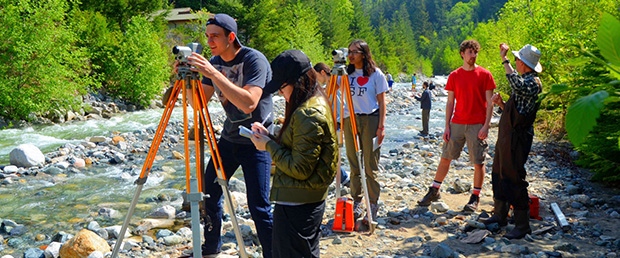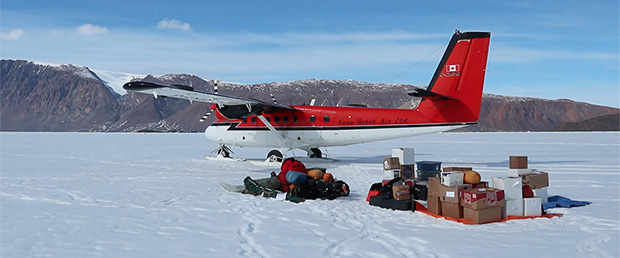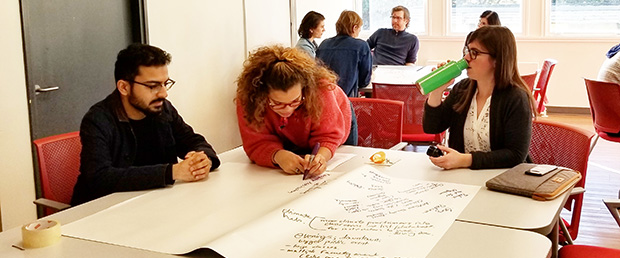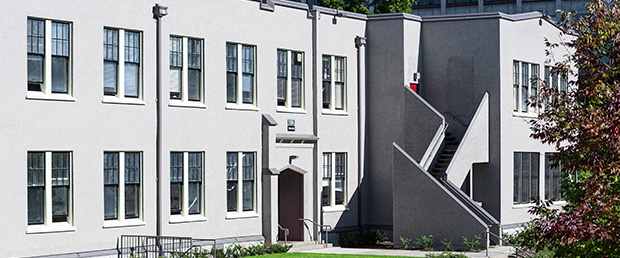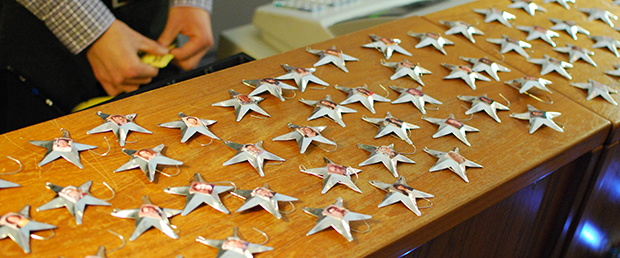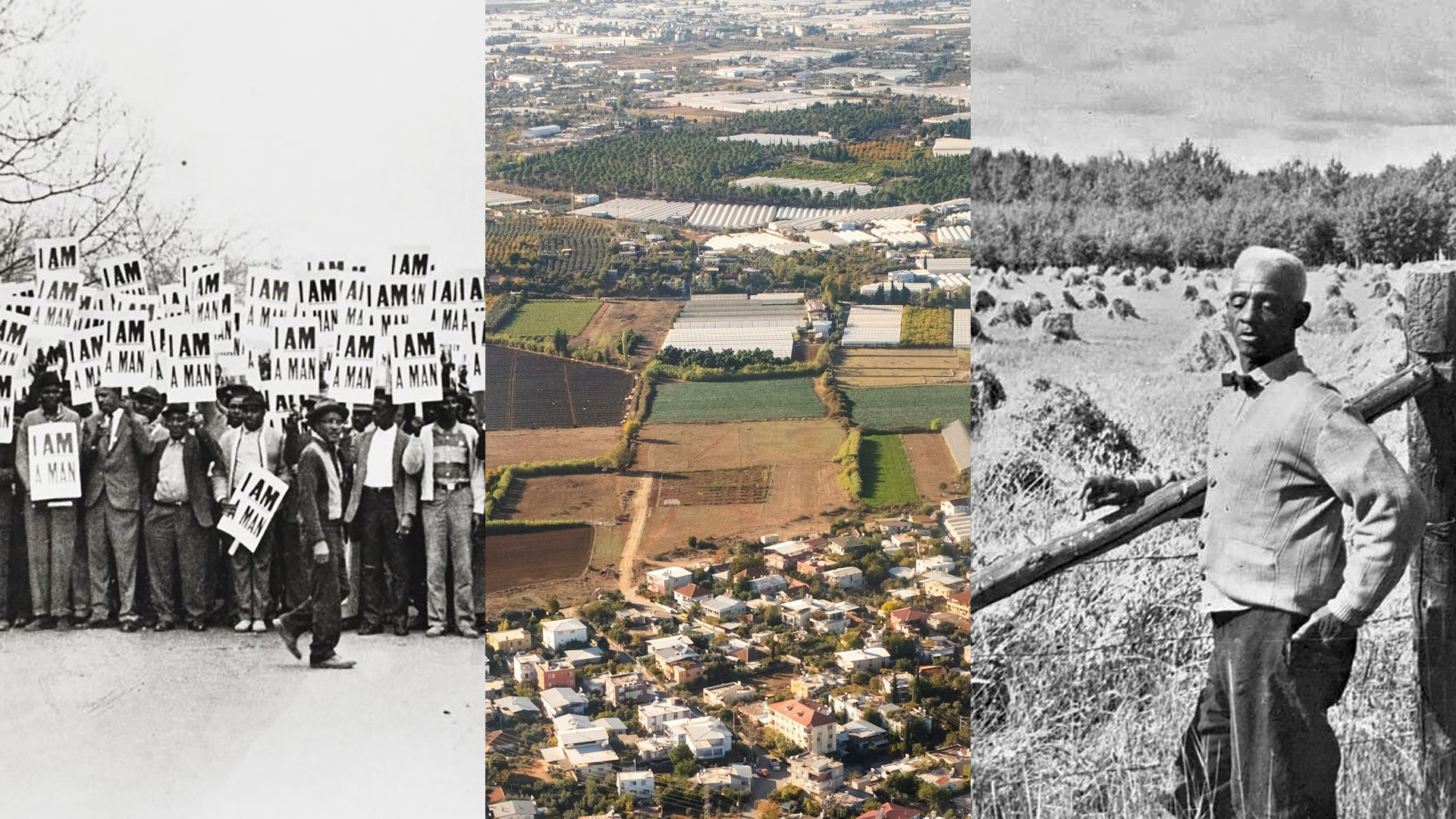On the 50th anniversary of Earth Day, we want to share the next step in our commitment to taking action on the climate crisis as a department.
Following consultation with the UBC Geography community, a Climate Action Plan (2020) has been created.
This lays out the changes we plan to make over the coming 12 months to reduce our carbon emissions, increase awareness of the climate crisis both in our teaching and on campus, and to lobby for climate justice.
Some of these have gone ahead a little earlier than planned due to the move to online teaching. As the COVID-19 outbreak has shown us, we must be constantly willing to amend and evolve our response to the climate crisis in a changing world.
Below is an outline of our goals; you can find more on how we plan to realise them in the full Climate Action Plan.
Teaching
- Host a departmental workshop for instructors and students on coping with climate change anxiety, with resources and best practices.
- Introduce a joint human and physical geography graduate seminar with some focus on climate change.
- Develop a new undergraduate course in climate justice, including Indigenous perspectives on climate change.
- Explore development of an interdisciplinary minor in climate change with the Faculty of Arts.
- Create a climate change studies concentration to provide students with a pathway through their existing Geography degrees that can focus on climate change.
- Offer a 4th year seminar focused on climate-related research projects in 2021/22, in collaboration with the UBC Climate Hub.
- Include UBC Geography Climate Action Plan in existing courses when relevant.
Research
-
- Half day climate change department retreat: presentations on what we are teaching and researching and how we might work together.
- Pursue an ‘Excellence’ chair to focus on climate change studies, with potential focus on migration, energy transitions, climate justice, water and food security, landscape impacts.
- Host one colloquium event per year via video conferencing to demonstrate low-carbon research dissemination. The event will be recorded and made available online.
- One colloquium panel per term for the next three years will be directly related to climate change issues. This panel will be hosted within an undergraduate class, recorded and made available online.
- Pursue a climate justice position / Indigenous environmental justice position.
- Fundraise for a climate change research or undergraduate scholarship with focus on supporting BIPOC students or on communities impacted by climate change and/or by climate change mitigation.
Travel
- Encourage department members to reduce travel-related emissions through information about alternatives.
- Encourage department members to reduce commuting emissions by supporting carpooling, bike commuting and revisions in teaching schedule once in-person classes resume.
- Send a department letter to UBC, Metro Vancouver and Translink to pressure for increased bus capacity and expansion of rapid transit to UBC once in-person classes resume.
- Advocate for UBC-wide changes that support a low-carbon research environment, including revision of merit and tenure criteria to support a low-carbon research footprint.
- Advocate for scientific societies (AAG, CAG, AGU) to move to biennial meetings, reducing international travel.
Advocacy & Communication
- Dedicate a section of the department website to climate issues; hosting information, research and a list of faculty researching climate change.
- Incentivize public communication by faculty on climate change.
Building / Facilities
- Invest in further video conferencing facilities in the building, including in room 229 and room 100.
- Purchase a video-conferencing subscription for department use.
- Explore covered bike storage for the building.
- Improve plumbing facilities to reduce excessive water use.
- Install programmable thermostats (both temperature and time of day settable) so that heating can be turned down/off outside office hours.
- Obtain the current electricity, heating and water usage of the building and track the department’s reduction in usage.
Events and Purchasing
- Prioritize plant-based food for events, and use caterers committed to reducing food waste.
- Use the UBC Sustainable Event Checklist.
- Use the UBC Sustainable Purchasing Guide.
